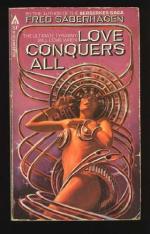That is my great trouble in taking tests and examinations of any kind. I always want to argue with the examiner, because the examiner is always so obviously wrong.
LXII
THE BROW-ELEVATION IN HUMOR
After an author has been dead for some time, it becomes increasingly difficult for his publishers to get out a new book by him each year. Without recourse to the ouija board, Harper & Brothers manage to do very well by Mark Twain, considering that all they have to work with are the books that he wrote when he was alive. Each year we get something from the pen of the famous humorist, even though the ink has faded slightly. An introduction by Albert Bigelow Paine and a hitherto unpublished photograph as a frontspiece, and there you are—the season’s new Mark Twain book.
This season it is “Moments With Mark Twain,” a collection of excerpts from his works for quick and handy reading. We may look for further books in this series in 1923, 1924, 1925, &c., to be entitled “Half Hours With Mark Twain” (the selections a trifle longer), “Pleasant Week-Ends With Mark Twain,” “Indian Summer With Mark Twain,” &c.
There is an interesting comparison between this sample bottle of the humor of Mark Twain and that contained in the volume entitled “Something Else Again,” by Franklin P. Adams. The latter is a volume of verse and burlesques which have appeared in the newspapers and magazines.
In the days when Mark Twain was writing, it was considered good form to spoof not only the classics but surplus learning of any kind. A man was popularly known as an affected cuss when he could handle anything more erudite than a nasal past participle or two in his own language, and any one who wanted to qualify as a humorist had to be able to mispronounce any word of over three syllables.
Thus we find Mark Twain, in the selections given in this volume, having amusing trouble with the pronunciation of Michael Angelo and Leonardo da Vinci, expressing surprise that Michael Angelo was dead, picking flaws in the old master’s execution and complaining of the use of foreign words which have their equivalent “in a nobler language—English.”
There certainly is no harm in this school of humor, and it has its earnest and prosperous exponents today. In fact, a large majority of the people still like to have some one poke fun at the things in which they themselves are not proficient, whether it be pronunciation, Latin or bricklaying.
* * * * *
But there is an increasingly large section of the reading public who while they may not be expert in Latin composition, nevertheless do not think that a Latin word in itself is a cause for laughter. A French phrase thrown in now and then for metrical effect does not strike them as essentially an affectation, and they are willing to have references made to characters whose native language may not have been that noblest of all languages, our native tongue.




